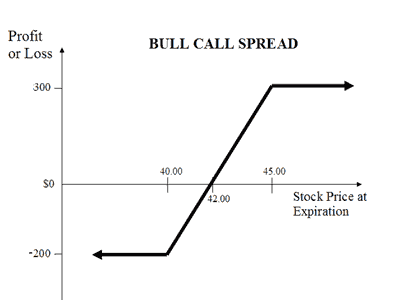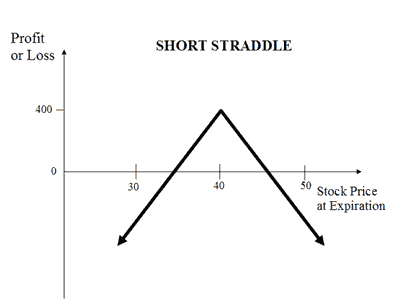 Zerodha (Trading Account)
Zerodha (Trading Account)
FREE Equity Delivery and MF
Flat ₹20/trade Intra-day/F&O
 Zerodha (Trading Account)
Zerodha (Trading Account)
FREE Equity Delivery and MF
Flat ₹20/trade Intra-day/F&O

|
|
Compare Bull Call Spread and Short Straddle (Sell Straddle or Naked Straddle) options trading strategies. Find similarities and differences between Bull Call Spread and Short Straddle (Sell Straddle or Naked Straddle) strategies. Find the best options trading strategy for your trading needs.
| Bull Call Spread | Short Straddle (Sell Straddle or Naked Straddle) | |
|---|---|---|
 |
 |
|
| About Strategy | A Bull Call Spread (or Bull Call Debit Spread) strategy is meant for investors who are moderately bullish of the market and are expecting mild rise in the price of underlying. The strategy involves taking two positions of buying a Call Option and selling of a Call Option. The risk and reward in this strategy is limited. A Bull Call Spread strategy involves Buy ITM Call Option and Sell OTM Call Option.For example, if you are of the view that NIFTY will rise moderately in near future then you can Buy NIFTY Call Option at ITM and Sell Nifty Call Option at OTM. You will earn massively when both of your Options are exercised and incur huge losses when both Options are not exercised. | The Short Straddle (or Sell Straddle or naked Straddle) is a neutral options strategy. This strategy involves simultaneously selling a call and a put option of the same underlying asset, same strike price and same expire date. A Short Straddle strategy is used in case of little volatility market scenarios wherein you expect none or very little movement in the price of the underlying. Such scenarios arise when there is no major news expected until expire. This is a limited profit and unlimited loss strategy. The maximum profit earned when, on expire date, the underlying asset is trading at the strike price at which the options are sold. The maximum loss is unlimited and occurs when underlying asset price moves sharply in upward or down... Read More |
| Market View | Bullish | Neutral |
| Strategy Level | Beginners | Advance |
| Options Type | Call | Call + Put |
| Number of Positions | 2 | 2 |
| Risk Profile | Limited | Unlimited |
| Reward Profile | Limited | Limited |
| Breakeven Point | Strike price of purchased call + net premium paid | 2 Breakeven Points |
| Bull Call Spread | Short Straddle (Sell Straddle or Naked Straddle) | |
|---|---|---|
| When to use? | A Bull Call Spread strategy works well when you're Bullish of the market but expect the underlying to gain mildly in near future. |
This strategy is to be used when you expect a flat market in the coming days with very less movement in the prices of underlying asset. |
| Market View | Bullish When you are expecting a moderate rise in the price of the underlying. |
Neutral When trader don't expect much movement in its price in near future. |
| Action |
A Bull Call Spread strategy involves Buy ITM Call Option + Sell OTM Call Option. For example, if you are of the view that Nifty will rise moderately in near future then you can Buy NIFTY Call Option at ITM and Sell NIFTY 50 Call Option at OTM. You will earn massively when both of your Options are exercised and incur huge losses when both Options are not exercised. |
|
| Breakeven Point | Strike price of purchased call + net premium paid |
2 Breakeven Points There are 2 break even points in this strategy. The upper break even is hit when the underlying price is equal to the total of strike price of short call and net premium paid. The lower break even is hit when the underlying price is equal to the difference between strike price of short Put and net premium paid. Break-even points: Lower Breakeven = Strike Price of Put - Net Premium Upper breakeven = Strike Price of Call+ Net Premium |
| Bull Call Spread | Short Straddle (Sell Straddle or Naked Straddle) | |
|---|---|---|
| Risks | Limited The trade will result in a loss if the price of the underlying decreases at expiration. The maximum loss is limited to net premium paid. Max Loss = Net Premium Paid Max Loss happens when the strike price of Call is less than or equal to price of the underlying. |
Unlimited There is a possibility of unlimited loss in the short straddle strategy. The loss occurs when the price of the underlying significantly moves upwards and downwards. Loss = Price of Underlying - Strike Price of Short Call - Net Premium Received Or Loss= Strike Price of Short Put - Price of Underlying - Net Premium Received |
| Rewards | Limited Limited To The Difference Between Two Strike Prices Minus Net Premium Maximum profit happens when the price of the underlying rises above strike price of two Calls. The profit is limited to the difference between two strike prices minus net premium paid. Max Profit = (Strike Price of Call 1 - Strike Price of Call 2) - Net Premium Paid |
Limited Maximum profit is limited to the net premium received. The profit is achieved when the price of the underlying is equal to either strike price of short Call or Put. |
| Maximum Profit Scenario | Both options exercised |
Both Option not exercised |
| Maximum Loss Scenario | Both options unexercised |
One Option exercised |
| Bull Call Spread | Short Straddle (Sell Straddle or Naked Straddle) | |
|---|---|---|
| Advantages | Instead of straightaway buying a Call Option, this strategy allows you to reduce cost and risk of your investments. |
It allows you to benefit from double time decay and earn profit in a less volatile scenario. |
| Disadvantage | Profit potential is limited. |
Unlimited losses if the price of the underlying move significantly in either direction. |
| Simillar Strategies | Collar, Bull Put Spread | Short Strangle, Long Straddle |


FREE Intraday Trading (Eq, F&O)
Flat ₹20 Per Trade in F&O
|
|
I understand the Advantage of time decay.
On dis-advantage, how time decay may go against in loss situations ?